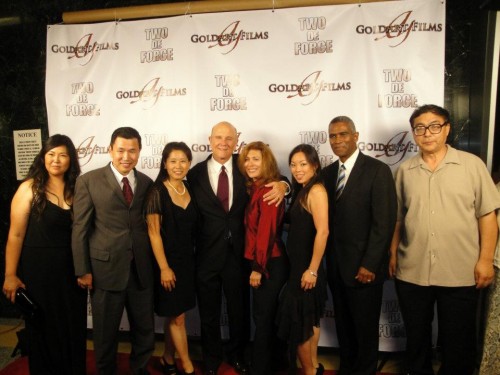PARAISO
Director Leon Ichaso, of “Bitter Sugar” fame, finally released his latest movie “Paraiso.”
The film addresses a relevant, but controversial, topic – the enormous differences between Cuban-Americans belonging to the Historic Exile (1959-1979) and those who left Cuba during and after the Mariel Boatlift (1980-present). Many impartial observers have indicated that it’s like if these two groups were raised in different planets. Naturally, there are exception to this rule – like musician and composer Amaury Gutierrez, who although belonging to the second group, thinks and acts like the Cuban-Americans from the Historic Exile.
Cuban-Americans from these two groups do not see eye-to-eye on many issues. For example, the disagreements range from topics such as whether the U.S. embargo should be lifted, to whether it’s okay to visit Cuba shortly after arriving in the U.S.
Cuban-Americans in the first group strongly support the keeping of the U.S. embargo until freedom is restored to their homeland, and refuse to step in Cuban soil until they can drink a Cuba Libre with authentic Cuban Bacardi rum in a Cuba that is truly Libre. Those in the second category think that the U.S. embargo is obsolete and should be overturned, while they go back to Cuba as many times as they can afford it.
These two groups trade insults often. Those from the second group use pejoratives to refer to Cuban-Americans from the Historic Exile as “Cuban Mafia,” “Miami Mafia,” “despicable parasites,” and “obsolete.” Cuban-Americans from the Historic Exile call those in the second category “Socialists,” “undocumented immigrants,” and, “economic refugees.” Naturally, there is not a lot of perestroika going on between these two groups.
At the end of the day, I think the differences emanate from the fact that these two groups have been raised with different sets of core values. To Cuban-Americans from the Historic Exile, la familia is sacred. To those in the second group, “resolver” or doing whatever you have to do to get your way, is the rule.
Can their differences be bridged? I think that it is more important to understand and accept that these two groups of Cuban-Americans are not the same.
I’ve ordered my copy of Paraiso, which I should get this week. I plan to have multiple viewings in my house with diverse audiences. I look forward to answer the question that Cuban-Americans are repeatedly asked – what will happen when Raul Castro is no longer in charge of the Cuban Government? A more appropriate question is “what will happen when democracy is restored to Cuba?” — considering that if Mariela Castro becomes the next head of state in Cuba, there will be more of the same nonsense.
The majority of the media outlets in the U.S. favor Cuban-Americans in the second category, and the few black sheep belonging to the first group. Therefore, it is rare that you hear the views of Cuban-Americans from the Historic Exile aired in the mainstream media. This is the reason why it is so important that we take it upon ourselves to air movies like “Paraiso” to American audiences who have been oversaturated with only one side of the story – with propagandistic ulterior motives.
View the trailer of “Paraiso” here. To order your copy through Amazon, click here.
TWO DE FORCE
Orestes Matacena enjoyed the premiere of his latest movie “Two de Force” on Monday, June 18, 2012. (See photograph below, with Orestes in the middle). His movie addresses the rising influence of Red China over the United States. Our good friend Silvio Canto, Jr., interviewed Orestes previously on his radio show from Houston, Texas.
I’ve asked Orestes to let us know when the movie goes out on sale, so that we can help him with its marketing.
To view a trailer of “Two de Force,” click here.


Thank you, THANK YOU, for posting this. I saw Bitter Sugar years ago and I will order a copy asap of the new one. I will be very interested to see how many Cubans actually help out through purchasing a copy.